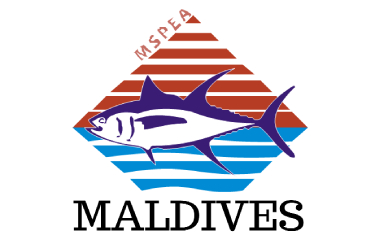Yellowfin tuna catch in the Maldives has been reduced by 7,737 metric tons in 2019 compared to 2015, the result of a concerted effort being made by the industry to align with resolutions set by Indian Ocean Tuna Commission (IOTC).
In 2015, the IOTC scientific committee determined that yellowfin catch totals in the Indian Ocean were above sustainable levels. In response to the committee’s findings, the commission adopted four resolutions between 2016 and 2019, including reductions in catch, to help stocks rebound.
The Maldives was required to reduce its yellowfin tuna catch by 5 percent from vessels with an overall length exceeding 24 meters, compared to 10 percent for longline and gillnet fleets and 15 percent from the purse=seine fleets operating in the Indian Ocean. The island nation’s predominantly pole-and-line and handline tuna fishery was able to reduce its catch by five times the IOTC requirement, the Maldives Seafood Processors and Exporters Association (MSPEA) announced in a press release.
The Maldives tuna fishery supports the livelihoods of over 30 percent of the nation’s population. The country is ranked the highest in terms of tuna consumption at 163 kilograms per capita, and 70 percent of its exports are tuna products. Consequently, the Maldives “has the most to lose from the collapse of yellowfin tuna stocks within the Indian Ocean,” MSPEA said.
Maldivian fishermen, processors, and the government joined forces in 2019 for three national campaigns dedicated to reducing yellowfin tuna catch, with a strong focus on reducing the amount of juveniles acquired. Per MSPEA, the initiatives included:
- MIFCO, the country’s largest skipjack processor, which is owned by the government, has encouraged the skipjack fleet to catch more from free-swimming schools instead of coastal anchored floating aggregating devices. The campaign resulted in significantly less juvenile yellowfin tuna caught by the pole-and-line skipjack fleet.
- The government of Maldives has revoked permits for all 32 foreign-built longliners that targeted yellowfin tuna and bigeye tuna within the country’s exclusive economic zone; and
- The largest yellowfin tuna processors in Maldives stopped the purchase of fish below 18 kilograms, and encouraged the handline fleet to avoid schools of juveniles. Additionally, yellowfin tuna processors increased the difference between prices offered to fishermen for fish weighing less than 30 kilograms and more than 30 kilograms. These measures resulted in a higher percentage of larger, more marketable size fish, and an overall reduction in yellowfin tuna landings from the handline fleet.
The tuna fishery in the Maldives is considered to be the most sustainable of its kind in the world, MSPEA said, noting that all tuna is caught using handline and pole and line methods in the country, ensuring “maximum sustainable yields are maintained with zero bycatch.”
After saying it has done its own part to reduce catches, MSPEA expressed concern about the overall increase in yellowfin tuna catch in the Indian Ocean.
“This increase of overall catches hampers efforts of countries that take stringent measures to adhere to IOTC resolutions. We call upon those lobbying to reduce yellowfin tuna catches in the Indian Ocean to recognize the proactive efforts and achievements made by the Maldives. Rewarding Maldives for its efforts and achievements will incentivize other fleets operating within the Indian Ocean to follow suit, and ultimately help achieve the objective of reducing yellowfin tuna catches within the Indian Ocean to sustainable levels,” the association said in its press release.
The collective said it’s hopeful regarding the Marine Stewardship Council’s (MSC) consideration related to “allowing certified fisheries to apply a harvest strategy at the level of the unit of assessment, rather than the level of the target stock, as it is currently.”
“MSPEA will be working with the MSC in the coming months to try and certify yellowfin tuna caught by the Maldives fleet. If MSC certifies yellowfin tuna from Maldives, it will not only incentivize other countries to better manage their fisheries, but also greatly assist the people of Maldives during a time in which the country’s GDP has shrunk 52 percent due to the ongoing COVID-19 crisis,” MSPEA, which is the certificate-holder for the Maldives pole-and-line skipjack tuna fishery MSC certification, said.







